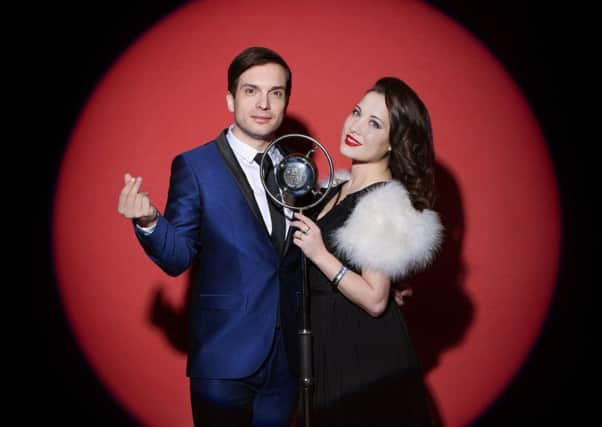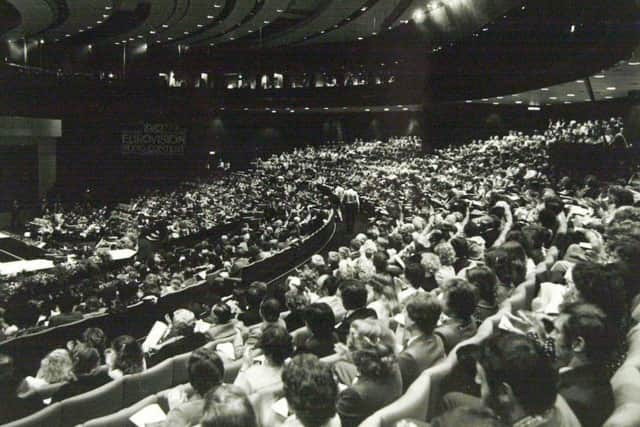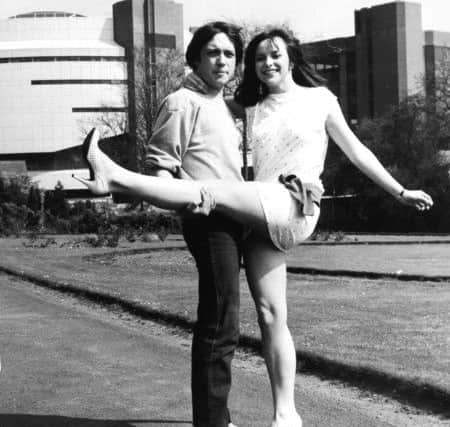When Eurovision came to Yorkshire - and when UK will perform this year


That was the year the Eurovision Song Contest rolled into Harrogate. With it came a showbusiness bandwagon of musicians and record pluggers, and a prime time audience of more than 200 million viewers.
Squeezed inside the newly-opened Harrogate Conference Centre - one-tenth the size of this weekend’s 60th anniversary Eurovision venue in Vienna - were fans, artistes and representatives of 18 participating nations.
Advertisement
Hide AdAdvertisement
Hide AdThroughout the evening, the host, newsreader Jan Leeming, treated TV viewers to stunning travelogue shots of Yorkshire, specially filmed for the occasion by the BBC. It was public relations gold.
For a week leading up to the big night, Harrogate was awash with music people, journalists and broadcasting executives, who sloshed their way from one drinks reception to another - the biggest at Castle Howard, location for the recently-screened (on ITV) Brideshead Revisited and the ancestral home of the BBC’s then-chairman, Lord Howard.
Each national broadcaster and record company took it in turn to host a junket, at the rate of two or three a day, and there was scarcely a bar in town that didn’t benefit.
Britain had earned the right to host the contest following the 1981 victory of Bucks Fizz with their skirt-ripping number, Making Your Mind Up. Harrogate had been picked as the venue by the BBC because its conference centre was one of the biggest auditoriums in the country.
Advertisement
Hide AdAdvertisement
Hide AdHopes were high for Britain’s entry, the boy-girl duo Bardo, put together by Bucks Fizz’s manager Nichola Martin. The critics fancied their chances but news editors were interested more in whether vocalists Sally Ann Triplett and Stephen Fischer were romantically involved. In the event, they finished seventh and went their separate ways.


It was the German singer Nicole who emerged victorious with her gentle protest song, A Little Peace - while the Finish band Kojo left with an ignominious nil points for their appropriately-titled song, Bomb Out.
Though it was one of the BBC’s biggest outside broadcasts, the video tape of the event makes it look like a house party compared to the vast and expensive Eurovision finals of recent years.
This weekend’s event, at Vienna’s Wiener Stadthalle, will feature 27 finalists, having been whittled down from an initial field of 40, including for the first time Australia. The BBC’s large financial contribution guarantees Britain an automatic place in the final.
Advertisement
Hide AdAdvertisement
Hide AdThe UK entry this year is another boy-girl duo, Electro Velvet, performing a song called Still In Love With You, which has been drawn fifth in the running order. Here is the full, ordered list to help you plan your viewing...


1. Slovenia
2. France
3. Israel
4. Estonia
5. United Kingdom
6. Armenia
7. Lithuania
8. Serbia
9. Norway
10. Sweden
11. Cyprus
12. Australia
13. Belgium
14. Austria
15. Greece
16. Montenegro
17. Germany
18. Poland
19. Latvia
20. Romania
21. Spain
22. Hungary
23. Georgia
24. Azerbaijan
25. Russia
26. Albania
27. Italy